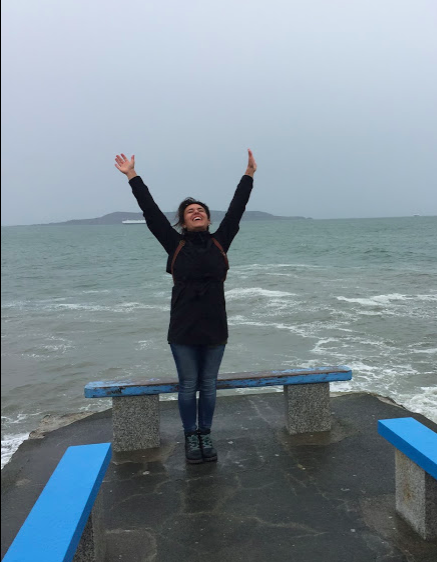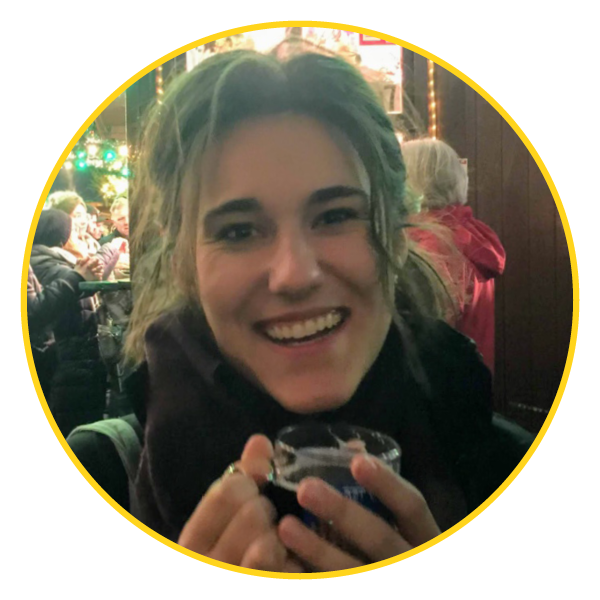
Mainz, Germany - sometimes assimilating can be as easy as wearing animal onesies to carnival, simple and comfy!
When I began to prepare for my study abroad experience, I remember the first thing I did was open Instagram. For hours, I snooped through the profiles of my friends who had lived abroad, wondering if I would be able to create an experience that was just as unique and fantastic as the posts I saw online. Then I remembered the question my German professor once posed to our class, in order to get us talking. “Is travel a commodity?” At first, when I heard him I didn’t really understand what he meant. How could travel be a commodity? It’s an activity, not a product. But after scrolling through post after post of people framing their study abroad experiences, I began to realize that sometimes we can turn travel into a product. It can be a way that we increase our reputation, a way we prove that we are unique and special. And that can be problematic.
Don’t get me wrong - I love sharing and seeing photos of peoples' travels. Using platforms like Instagram and Facebook to log your adventures is an amazing way to share your life abroad. I love being able to share my life in Germany with my family and friends back home instantaneously, but I worried about how to find a way to live authentically in my host country. I didn’t want to treat the places I went or people I met abroad as tools to make my experience better but rather a jumping off point to immerse myself into the lives of others, and, as a result, allowing what I learned to change how I view the world around me.
Now, I’m not saying I’m an expert in living authentically abroad, but I have learned a few tips and tricks over the last months that have helped me learn how to live for the experience and not for the gram.
DO YOUR RESEARCH:
You would never apply for a job or sign up for a course without knowing what you’re getting into, would you? The same concept applies to moving overseas. It’s important to know not just where you’re going but also the history of that place and how your host country has interacted with your country in the past. Learning about the history, local languages, customs, and ethnic groups that make your host country the place it is today is sooo important. I mean, you most likely won’t get quizzed on the street about your knowledge of Korean history or be asked to name all English monarchs before Queen Elizabeth, but knowing about the history of where you are allows you to feel more confident about interacting with the culture and people around you. Or if you’re not big into reading articles, try visiting local museums. They are going to help give you insight into traditions and events that help make your host country come alive.

Deutsches Historisches Museum, Berlin - Pro-tip: color coordinate with the exhibits to make your museum experience really POP!
ASK QUESTIONS:
I always have questions. And yes, I was definitely that annoying kid in the back of the classroom whose hand would pop up every five minutes, and I’ve never really stopped asking questions. Now, living abroad, I’m constantly running into situations where I don’t know what I’m doing. Whether it is trying to open a bank account in a foreign language, figuring out public transport or asking why everyone was eating pizza without sauce (it’s called Flamkuchen, and it’s delicious!), I always have questions. At first, I was scared to ask them. I didn’t want to sound dumb, or incompetent but I quickly found out that not asking questions was worse than asking them (flashback to when I got lost on some random logging trails in the middle of the Black Forest for four hours, ouch). So I’ve slowly learned that when I’m curious or confused I should ask my question and then really listen to the answer.

Procida, Italy - Flamkuchen is great, but I am still a pizza purist
I’ve found that people are almost always excited to share their culture, traditions, and perspectives with those who are interested and willing to really listen. So be inquisitive and stay inquisitive. Who knows, you might even make a few new friends along the way!
BE FLEXIBLE IN THE LITTLE THINGS:
A lot of times it can be difficult to know how to jump into another culture, especially if the language in your host country is one that you’re unfamiliar with. My advice: make little changes. You don’t have to change your whole life automatically overnight, but adopting a few changes to the way you eat or dress, can allow you to subtlety begin to interact with the culture around you in easy ways.
For example, I remember arriving in Germany in August with the sun roasting us and being astounded by all the Germans around me sweating it out in jeans (shorts aren’t really an everyday clothing item for most Germans). Did the mass of jean-wearing people around me make me wear jeans on a hot day? No! but you better believe I was buying a huge German blanket scarf in November to keep me warm as I rode the streetcar to class every day.
The point is: find a compromise. You don’t have to give up things that you love, but being open to introducing new things from your host country's culture into your daily life will definitely help you feel more at home in your new culture and sooner or later you’ll find yourself assimilating faster than you thought.

Dun Laoghaire, Ireland

Maggie Fischer is a German and history major at the University of Iowa spending the 2018-19 year in Germany on the Academic Year in Freiburg program.